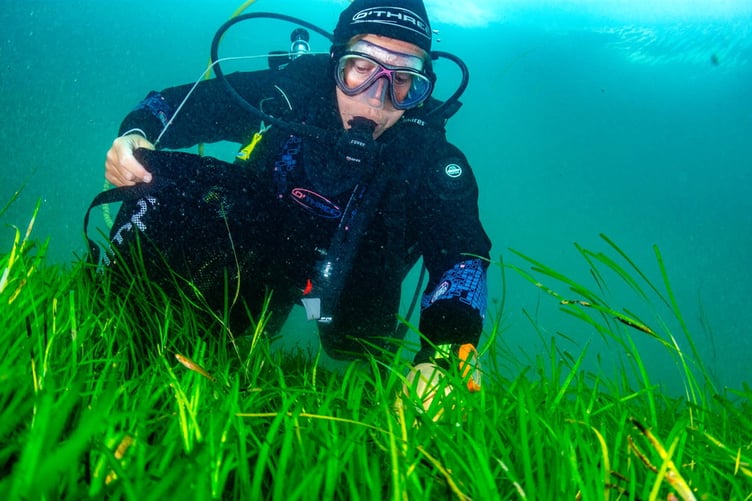A NORTH Wales project to improve seawater quality, encourage marine life to flourish and combat global warming is getting a £1 million National Lottery grant.
Part funded by The National Lottery Heritage Fund, Seagrass Ocean Rescue is managed by WWF in partnership with Project Seagrass, Swansea University, North Wales Wildlife Trust and Pen Llŷn a’r Sarnau SAC.
The project is working with local communities to design and deliver this ambitious seagrass restoration project.
Andrew White, director of the National Lottery Heritage Fund in Wales said: “The need to tackle and reverse the effects of climate change has never been greater and funding important nature projects such as this is a key priority for the National Lottery Heritage Fund in Wales.
“This important seagrass restoration project in north Wales will help revitalise and restore seagrass meadows and train local residents in marine conservation skills so that they can get actively involved in combatting global warming.”
Seagrass meadows improve water quality by filtering pollution and provide spawning, nursery and feeding grounds for marine species, including fish.
Seagrass also helps provide coastal protection by trapping sediment to the seabed, holding it fast by its thick network of roots
It is also highly efficient at trapping carbon yet the UK has lost up to 92 per cent of its seagrass habitats over the last 100 years.
And according to research, there remains only an estimated 45.8km2 of seagrass habitat along the Welsh coast and most of it is in a “perilous state”.
Ricardo Zanre, ocean restoration programme manager at WWF said: “Seagrass is a wonder plant which provides incredible benefits for people, nature and climate. Sadly, it has all but disappeared from Welsh waters, so we are delighted to receive this funding which will help us restore vital seagrass meadow to the north Wales coastline.
“Seagrass supports a variety of marine species from seals to anemones, provides nursery ground for the fish we eat, and absorbs carbon to help tackle global warming. By restoring seagrass, we are building a powerful ally that will help us adapt to and mitigate against climate change and reverse the loss of nature.”
WWF will work with partners including Project Seagrass, Swansea University, North Wales Wildlife Trust and Pen Llŷn a’r Sarnau Special Area of Conservation to deliver Seagrass Ocean Rescue North Wales.





Comments
This article has no comments yet. Be the first to leave a comment.